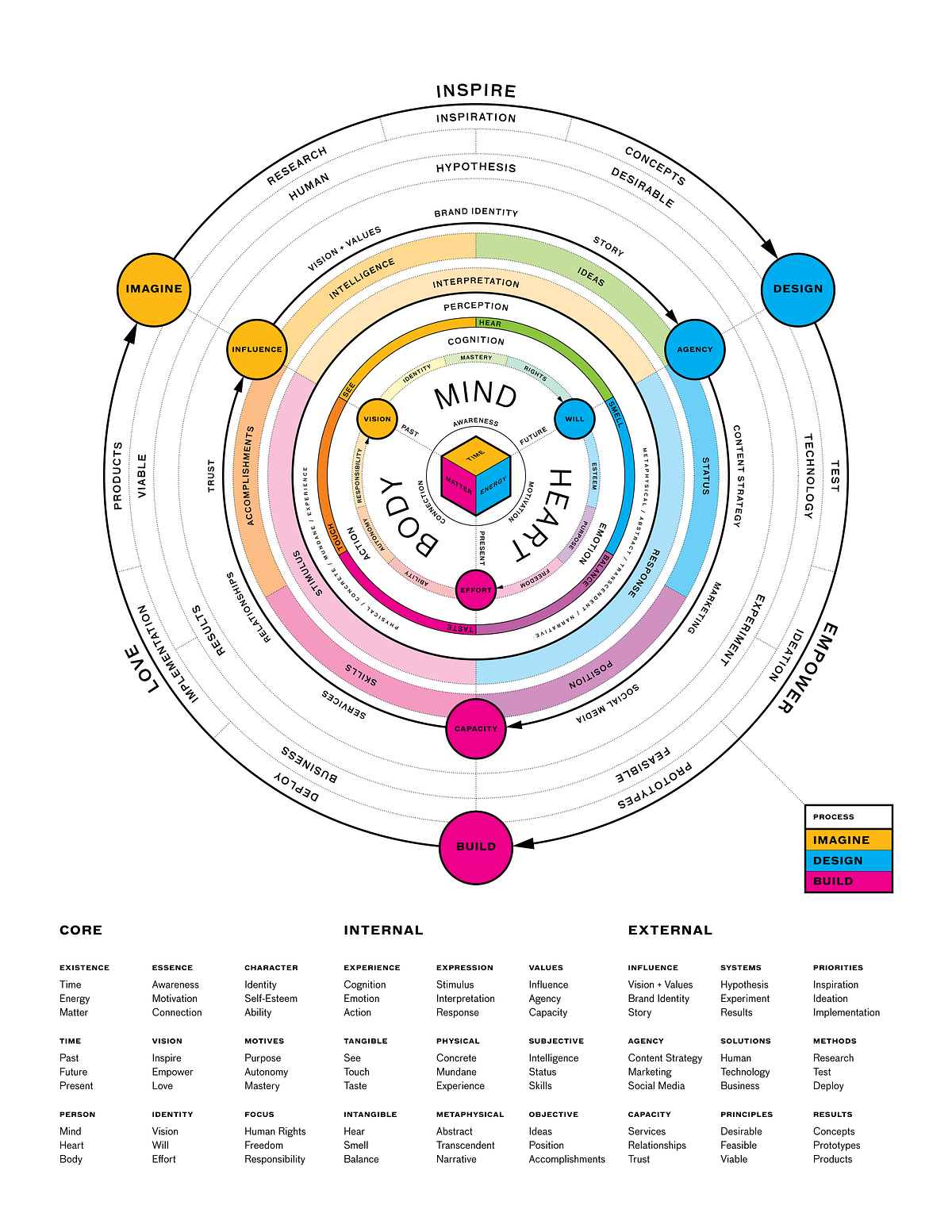The Science of Creativity
User experience design is the science of creativity. We have applied the scientific method—hypothesis, experiment, test, repeat—to the study of human behaviour, so that we can design usable product designs. We use different terms: define, prototype, test, iterate.

Hypothesis, Experiment, Results
We have been experimenting on the Earth’s ecosystem for the past 500 years, since European nations discovered their ability to navigate the globe and export the religious death cult of limitless extraction, growth, and violence.
Now that the experiment has run its course, there are attempts to prop up the failing experiment by further enriching billionaires and infusing trillions of dollars of cash into corporations and dying industries.
As designers, we act as the mouthpieces for corporate CEOs and public relations representatives, perpetuating the myths of the economic gods: propaganda, progress, and profits.
Now that COVID-19 has forced us to press pause on the corporate pillaging of the earth, at least long enough to understand that corporations are revealing their inhuman motivations, by forcing people to work through the pandemic and further risking loss of human life, we can take time to think through what we have been building for the last 500 years.
The last 100 years have been particularly devastating to our ecosystems and planet. I will call you a liar or willfully ignorant to your face, if you denied it.
Now that the governments of our nations have themselves called for a stop to much of our work, we find ourselves being locked out of the benefits of the corporate state. Corporations are covering their backs by directing governments to throw a little cash toward the plight of the stressed out workers who have been labouring to maintain the regime of the corporate domination around the world. Yet, clearly, corporations continue to take the lions share, continuing to increase the debts owed to ensure control through debt slavery.
The world is working exactly as we designed it.

What is Wrong with Designers?
Why are designers silently working away on projects that are not in the best interests of human beings while parroting the mantras of the corporate design evangelists that have reframed the branding, marketing, advertising, and government propaganda that we are engaged in as “design thinking” and “human-centred design”?
Why are we spending our time, energy, and resources in support of corporate monopolies that are enriching themselves at the expense of public discourse and democratic solidarity.
A Time for Anger
Damn right, I’m angry!
It’s time to wake up, people!
We have real work to do. And it is not to support the corporate kleptocrats who are destroying are children’s futures and forcing us to be complicit in the genocide that we can’t seem to even recognize, let alone admit that we are participating in.
If we throw a little philanthropy in the direction of meeting actual human needs, we’re good, right?
NO!
Regenerative Design
There are options. We can change. It is time.
Let’s call the scientific experiment of the last one hundred years to be a failure.
To make that a constructive conversation, it has to start with examining the underlying assumptions that drive us to harmful practices. In this way, we can help to decrease the harmful pollution that our work activities currently generate.
Research findings never go stale, so what's the hurry to perform our #designresearch so fast? https://t.co/xzwHQvrID9
— Modernist Studio (@modatx) April 2, 2020
Challenging Cultural Assumptions
Are we able to challenge the cultural assumptions that we have inherited?
- Competition over scarce resources as a primary motivator
- Extraction of monetary value as the primary activity
- The destruction of living systems as the inevitable result
Social Architecture
Can we start with our assumptions about business?
- Why have we granted corporations legal personhood?
- Why is public discourse dominated by business propaganda?
- Why is human behaviour a thoughtless race to the cliff of extinction?
Design For Resilience
If existential fear drives the competition for scarce resources, we will inevitably create products, services, and systems that result in harmful practices and human exploitation and domination to benefit those at the top of the hierarchy.

How might we design a world where we can all live together without killing each other and undermining the life support systems of the planet?
Successful economies are not competitive, but cooperative.
“If words make worlds, then we urgently need to tell a new story about the climate crisis. Here is one vision of what it could look and feel like to radically, collectively take action.”

“Airplanes let us travel across a dozen time zones in a single day.”
Why is efficiency our primary value? Corporations have programmed us to serve the machine and the economy. The story of money is just a fiction that we tell ourselves, but it is also killing the planet.
“We are being optimized by something outside ourselves, toward purposes we don’t even know.”
“…as technology goes from tool to replacement, the humans using it devolve from users to the used.”
@rushkoff



